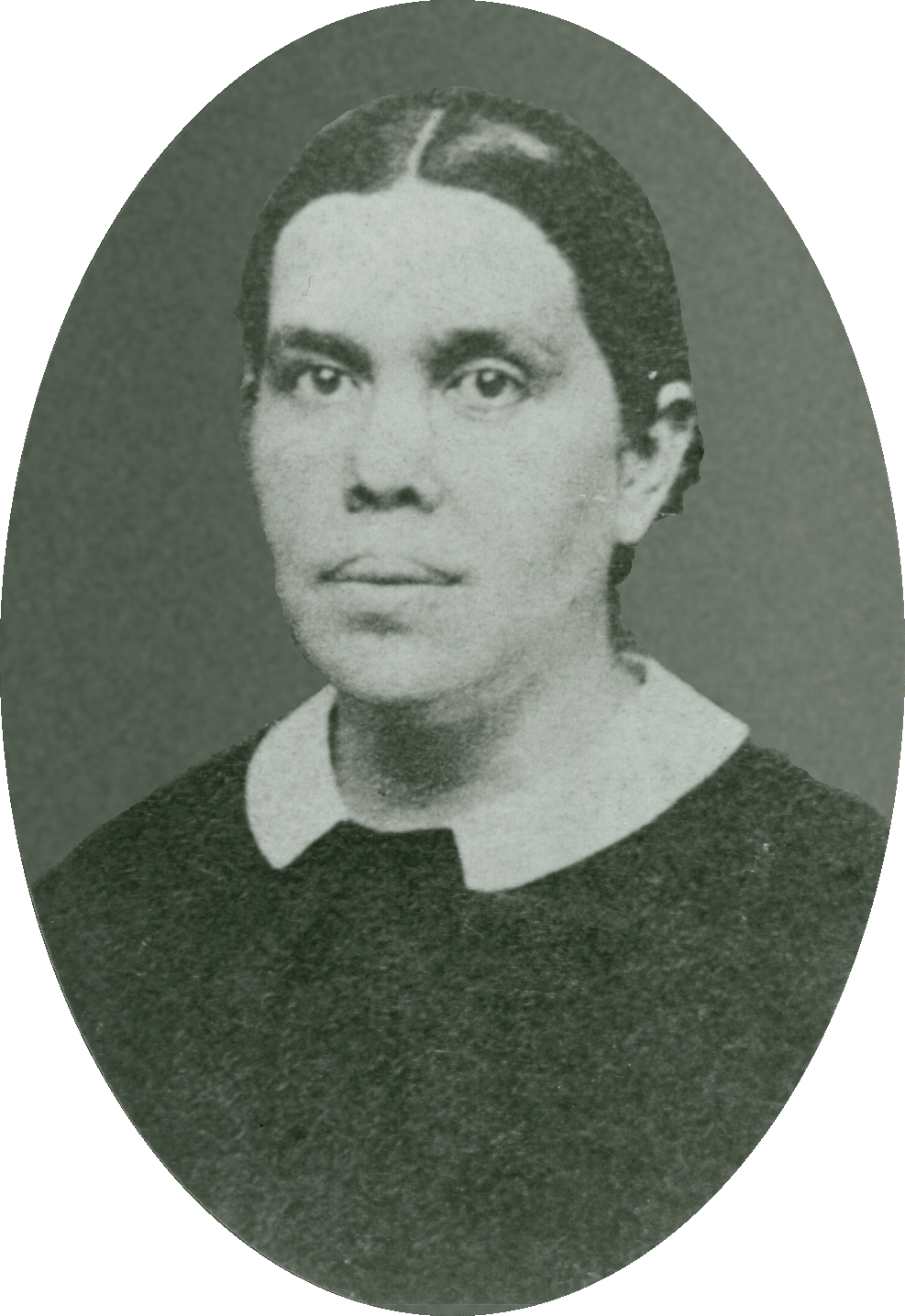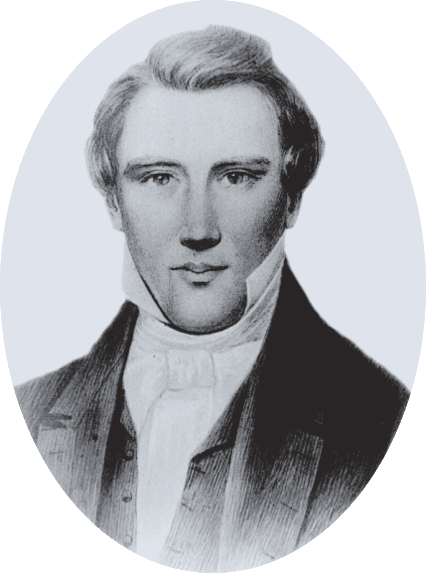Seventh-Day Adventist vs. Mormon Beliefs
Seventh-Day Adventists and Mormons are two very different denominations, though with some common historical themes. Both denominations began in America in the 1800s among Protestants following people they believed to be prophets.

The Seventh-Day Adventist Church grew out of the Millerite church when their prediction of Christ's return proved false. Shortly after their prediction's falsehood was revealed, Ellen G. White began attesting to visions. Her prophecies and writings would become key to the denomination which she and her husband would found.

The Mormon Church was founded shortly beforehand by Joseph Smith. Smith grew up with a belief system of a mix of Presbyterian, Methodism, and folk magic; but by his teens claimed to be receiving visions from God. He then would allegedly receive golden plates from an angel with hieroglyphics only he could translate to form the Book of Mormon and found the Mormon Church.
While both were founded by self-proclaimed prophets, there are some differences in how these are perceived. Seventh-Day Adventists consider Ellen G. White to be a prophet and a spiritual leader, but they do not consider her writings to be on the same level as the Bible. They believe that her writings are a source of inspiration and guidance, but not authoritative or inerrant. Ultimately, they believe in sola scriptura and that the Bible is the only book needed for Christianity. In contrast, Mormons consider Joseph Smith to be a prophet and the founder of their church. They believe that he received revelations from God and that the Book of Mormon is a divinely inspired text. They consider both the Bible and the Book of Mormon to be authoritative and consider Joseph Smith's teachings to be key to salvation.
In addition to this similarity, both churches claim to be Christian, advocate for vegetarianism, are quite socially conservative, and have "-day" in their official names. That is about where the similarities end.
Seventh-Day Adventists are fairly typical Protestant Christians. They believe in the Bible, salvation by faith alone, total depravity, and Arminianism. Although historically they have had disputes on the eternality of Jesus, they now endorse a traditional view of the Trinity.
Mormons are a very unconventional denomination with many differences from Nicene Christianity. They do not believe Jesus is God, but that God, Jesus, and the Holy Ghost are three separate gods. This largely stems from their extensive extrabiblical canon mostly published by their founder, Joseph Smith. They further have a unique tiered system of afterlives based on a list of covenants people must obey, which results in married couples eventually becoming gods themselves.
Ironically, the areas where Seventh-Day Adventists differ the most from other Christians (Saturday worship, soul sleep, and adherence to the Mosaic Law) are some of the few areas Mormons follow them. Mormons do worship on Sundays, believe in conscious—albeit only spiritual—life immediately after death, and believe in freedom from the Mosaic law, although Doctrine and Covenants defines its own set of rules they must follow.
Belief Table
| Seventh-Day Adventist | Mormon | |
|---|---|---|
| a.k.a. | Latter-Day Saint | |
| Number of Members | 22,000,000[1] | 16,800,000[2] |
| How does one get saved? | Sola fide: Repent of your sins and believe in Jesus Christ's death and resurrection alone to save you.[3] | There is no singular salvation for Mormons: Exaltation, or going to the highest of the three degrees of glory and becoming a god, is achieved by getting baptized, confirmed, ordained in the Melchizedek priesthood (if a man), endowed, and married and then by keeping the covenants for the rest of one's life. |
| Who gets saved? | Anyone who chooses by his own free will to believe and accept God's gift of grace will be saved. | Anyone who chooses by his own free will to believe and accept God's gift of grace will be saved. |
| Can one lose his salvation? | Yes, a Christian can lose his salvation by apostasy.[3] | Yes, the promise of exaltation can be lost by breaking one's covenants, except for a select few couples who are chosen for a second anointing which guarantees exaltation unless one sins against the Holy Ghost or commits murder. |
| Who gets baptized and why? | Saved people get baptized as a public demonstration of their new lives.[4] | Understanding persons get baptized as the first ordinance, cleansing them of all sins. |
| How should baptism be done? | Baptism should be by immersion.[4] | Baptism should be by immersion. |
| When does one receive the Holy Spirit? | The Holy Spirit is received at baptism.[5] | The gift of the Holy Ghost is received at confirmation. |
| What is the trinity? | The Trinity is God existing as one god in three equal, eternal, cosubstantial persons: God the Father, God the Son (Jesus Christ), and God the Holy Spirit. | The Godhead comprises three separate gods—God the Father, his son Jesus Christ, and the Holy Ghost. |
| What is the human nature? | Total depravity: Human nature is corrupt, naturally inclined to evil, and incapable of choosing God on his own. | Humans are neither inherently good nor inherently evil. |
| Are we guilty of Adam's original sin? | No, we are not guilty of Adam's sin, but we did inherit the consequences and a corrupt human nature from him, causing us all to sin. | No, "men will be punished for their own sins, and not for Adam's transgression." |
| Are Christians required to keep the Old Testament ceremonial laws? | Yes, all Old Testament laws are binding on Christians except for animal sacrifices. | No, the ceremonial laws of Judaism were fulfilled and done away with by Jesus. |
| Can Christians become sinless in this earthly life? | Most believe no, although Christians can and should sin less, they can never become sinless in this life.[6] | No, although Christians can and should sin less, they can never become sinless in this life. |
| Do the elements of communion become the body and blood of Christ? | No, the elements merely symbolically represent the body and blood of Christ. | No, the elements merely symbolically represent the body and blood of Christ. |
| Can one be baptized of behalf of someone who has died? | No, the dead cannot be baptized. | Yes, a living person can be a proxy for the dead to be baptized, who then can accept or reject it in the afterlife. |
| What happens if a saved person dies without being perfect? | Once Christians leave their sinful bodies, nothing else is needed to receive glorified, sinless bodies.[7] | Once Christians leave their sinful bodies, nothing else is needed to receive glorified, sinless bodies. |
| Did Mary ever sin? | Yes, Mary sinned like all other humans except Jesus. | Yes, Mary sinned like all other humans except Jesus. |
| What spiritual gifts are available today? | Continuationism: All spiritual gifts are still available to believers.[8] | Continuationism: All spiritual gifts are still available to believers.[9] |
| What framework has God used in dealing with man? | God has different periods of history where he has at least one authorized servant on earth.[10][11] | |
| What is the gift of tongues? | Speaking in tongues is sometimes unintelligible and sometimes foreign human languages.[12] | |
| How many church ordinances/sacraments are there? | The church has three ordinances: Baptism, Holy Communion, and Footwashing.[13] | The Church has five saving ordinances: Baptism, Confirmation, Ordination to the Melchizedek Priesthood (for men), the Temple Endowment, and the Marriage Sealing. There are roughly a dozen other ordinances important for comfort.[14] |
| To whom do Christians need to confess their sins? | Confession should be made directly to God, but confession to another believer is beneficial for some sins. | Confession should be made directly to God unless the church might discipline for such sin, in which case it must be confessed to the bishop.[15][16] |
| How should a church be structured? | Church congregations should be governed by a local conference which its congregation elects a representative to, and conferences elect representatives to higher conferences governing them. | Wards should be governed by the president in that stake, who in turn is governed by the seventies, who are governed by the Twelve, who are governed by the President of the Church.[17][18] |
| What day of the week should Christians worship? | Christians should worship on Saturday. | Christians worship on Sunday. |
| How does God's revelation come to us today? | Sola scriptura: The Bible is the only infallible source of God's revelation, sufficient for all faith and practice.[19] | There are many sources of God's revelation. |
| How was the Bible written? | Dynamic inspiration: God inspired the thoughts of the human authors, but the words were chosen by the authors.[20] | |
| How many books are in the Bible? | There are 66 canonical books of the Bible: 39 Old Testament books and 27 New Testament books. | There are 66 canonical books of the Bible—39 Old Testament books and 27 New Testament books—and three other canonical books: the Book of Mormon, the Doctrine and Covenants, and the Pearl of Great Price. |
| Was the Bible written inerrantly? | The Bible is infallible, but not every word is without error.[21][22] | No, the Bible is not inerrant in any respect.[23][24] |
| Who can speak with God's authority today? | The President of the Church and the Twelve Apostles are prophets, seers, and revelators who speak for God and whose prophecies shall all be fulfilled.[25][26] | |
| How was the earth created? | Creationism: The earth was spoken into existence by God. | The earth was created by God organizing matter which has existed eternally.[27] |
| What is marriage? | Marriage is a covenant before God between one man and one woman.[28] | Marriage is a covenant before God between one man and one woman.[29] |
| Is sex permissible outside marriage? | No, sex outside of marriage is not permissible.[30] | No, sex outside of marriage is not permissible.[29] |
| When is divorce permissible? | Divorce is permissible for adultery or desertion.[28][31] | Divorce is permissible for any reason allowed by law.[32] |
| May a Christian remarry while his former spouse is still alive? | The innocent party to the adultery may remarry.[31] | Yes, a Christian may freely remarry after divorce.[33] |
| When does a fetus become human? | Humanity begins at conception.[34] | No established doctrine, but the church opposes elective abortions.[35][36] |
| Is contraception permissible? | Yes, contraceptives are permissible.[37] | Yes, contraceptives are permissible.[38] |
| Are blood transfusions permissible? | Yes, blood transfusions are permissible.[39] | Yes, blood transfusions are permissible. |
| Should women cover their heads? | No, head coverings are no longer required due to cultural changes.[40] | |
| Should Christians drink alcohol? | No, alcohol should be totally avoided.[41][42][43] | No, alcohol should be totally avoided. |
| Should Christians fight in wars? | Varies widely | Yes, Christians should fight in just wars.[44][45] |
| Whom does the Holy Spirit come from? | The Holy Spirit proceeds from the Father and the Son.[46] | The Holy Spirit is a separate god. |
| Where does a Christian's soul go after death? | Souls are unconscious after death until God raises them from "sleep".[47][48][49] | The righteous await the resurrection in Paradise, part of the spirit world.[50][51] |